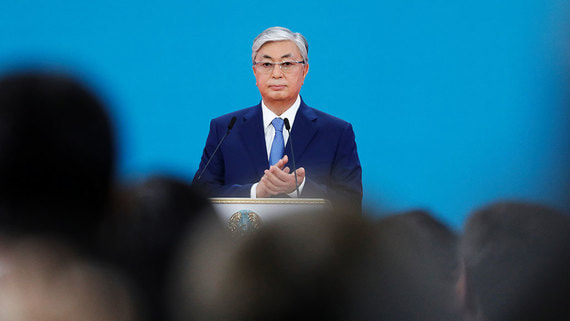Tokayev dismissed the Majilis and called early elections
[ad_1]

In Kazakhstan, by a decree of President Kassym-Zhomart Tokayev dated January 19, the Majilis (lower house of parliament) was dissolved. Extraordinary elections of the chamber are scheduled for March 19, 2023. The representative authorities of the regions of Kazakhstan – maslikhats – have also been dissolved.
Tokayev’s published statement says that this decision was made after consultations with the chairmen of both chambers and the prime minister in accordance with the Constitution and the results of the referendum, in which “the people of Kazakhstan supported political reforms, including those aimed at updating the procedure for the formation of parliament and maslikhats.”
According to the constitutional reform carried out after the referendum on June 5, 2022, 70% of the Majilis deputies will be elected from party lists, and 30% from single-member districts. Previously, all 100% of deputies were elected from lists. Elections to maslikhats of regions and cities of republican significance will also be held in the ratio of 50% for lists of 50 in districts. In elections to maslikhats of districts and cities of regional significance, citizens will vote only for candidates in single-mandate constituencies. Simplification of the registration procedure for parties was also declared – the registration threshold was reduced four times, from 20,000 to 5,000 members, the minimum number of regional representations of parties was reduced from 600 to 200 people.
The future elections to the Majilis of Kazakhstan were already preceded by extraordinary presidential elections. On November 20, 2022, Tokayev won them with 81.3%. Members of the Senate were replaced – they are elected by electors from the regions, and some are appointed by the president. On January 12, the first president of the country, Nursultan Nazarbayev, was deprived of the status of an honorary senator, and even earlier, in December 2022, a bill was sent to the Majilis to deprive him of his special status and to remove the corresponding clause from the Constitution of the country.
Early elections to the Majilis are part of the previously announced by Tokayev and already partially carried out post-Nazarbayev “reset” of the political system of Kazakhstan, says Stanislav Pritchin, senior researcher at the Central Asia sector of the Center for Post-Soviet Studies at IMEMO. Certain changes in the political landscape for 2022 are already visible – the Republic party has been registered, which, obviously, will compete with the Ak Zhol party associated with Nazarbayev’s disgraced son-in-law Timur Kulibayev. Other political projects and new faces are emerging, and the role of women is growing, as shown by two female presidential candidates, Pritchin says.
Formally, there is a demand for a more open political system with a large representation of businesses, including small ones, women, activists of various directions, the expert says. Tokayev himself spoke about the need to create a system that is more “hearing” the needs of the population. But its real discovery will mean unpredictable consequences for the governance of the country.
“The main task now is to form a parliament more loyal to Tokayev. Although the current composition of the Mazhilis supported the incumbent president after the January events and throughout 2022, it was still a structure tailored personally to Nazarbayev. Tokayev is now rebuilding it for himself, he has already reformatted the ruling party and changed its name from Nur-Otan to Amanat,” Pritchin recalls. The global task of the entire “reset” is to break with the political legacy of Nazarbayev, and for Tokayev himself to finally distance himself from the status of “successor”, the expert believes.
[ad_2]
Source link








